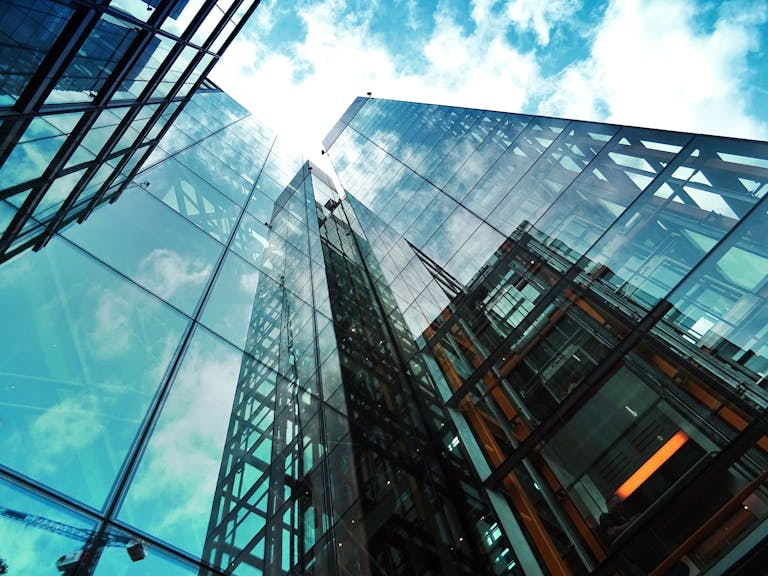Business Insurance for Physical Premises: Key Considerations
Operating a business with a physical location comes with unique risks and responsibilities. Whether you run a café, retail store, warehouse, or office, your premises are central to your operations — and protecting them should be a priority. With threats such as fire, theft, storm damage, and liability claims, having the right business premises insurance is essential for long-term sustainability and peace of mind.
In this guide, we’ll explore the core considerations for insuring your commercial property, the types of coverage available, and legal obligations relevant to Australian businesses.
Why Business Insurance for Physical Premises Matters
Your physical premises are more than just bricks and mortar — they house your inventory, equipment, and employees. Damage or loss could disrupt your operations, cause significant financial hardship, or even force temporary closure. Business insurance tailored for physical premises provides a safety net, ensuring you can recover quickly from unexpected events.
Whether you own the building or lease it, having adequate business location coverage is not just a recommendation — it’s often a legal and contractual necessity. Landlords may require tenants to have insurance, and business loans often stipulate adequate cover as a condition.
Key Insurance Types for Commercial Premises
There are several types of insurance policies that fall under the broader umbrella of commercial property insurance. Choosing the right combination depends on your business type, industry, location, and specific risk exposure.
1. Building Insurance
If you own the property, building insurance is fundamental. It covers damage to the structure caused by fire, storms, floods, vandalism, or accidental events. It typically includes:
- Walls, roof, floors, and ceilings
- Fixtures and fittings
- Pipes and cables
- Outdoor signage and awnings
For leased premises, building insurance is usually the landlord’s responsibility, but tenants may still be liable for glass breakage, fit-outs, and any internal modifications.
2. Contents Insurance
Contents insurance covers the physical items inside the premises — such as stock, furniture, electronics, and machinery. It ensures you can replace or repair your items in the event of theft, damage, or loss.
This is especially vital for retail or hospitality businesses, where stock and equipment represent a large share of capital investment.
3. Glass and Signage Cover
Shopfronts and commercial buildings often have large glass windows or signage exposed to damage. Standard policies may not include glass replacement, so dedicated glass and signage insurance is worth considering, particularly for street-facing businesses.
4. Business Interruption Insurance
Damage to your physical premises can lead to temporary closure, loss of income, and ongoing fixed costs like rent and wages. Business interruption insurance covers these financial losses during the repair or rebuilding period.
It can also include:
- Relocation expenses
- Temporary business premises costs
- Lost profits based on prior turnover
This cover is a lifeline for maintaining cash flow during unexpected disruptions.
5. Public Liability Insurance
Operating a physical location means customers, suppliers, and the public may visit your premises. If someone suffers injury or property damage while on-site, your business could be held legally liable.
Public liability insurance covers legal costs and compensation claims, helping you meet your duty of care obligations under Australian law. This is essential not just for storefronts, but for warehouses, offices, and even home-based businesses with visitors.
Tailoring Insurance to Your Business Type
No two businesses are alike, and neither are their insurance needs. Here’s how different industries can approach business premises insurance:
Retail Stores
Retail outlets are vulnerable to theft, vandalism, and customer injury. A comprehensive policy should include:
- Contents and stock insurance
- Glass and signage cover
- Public liability
- Business interruption
For high-traffic shopping centres, landlord insurance may cover some risks, but tenants are usually responsible for internal fit-outs and liability.
Hospitality Venues (Cafés, Restaurants, Bars)
In addition to physical risks, food businesses face health and safety concerns. Key inclusions should be:
- Equipment breakdown (e.g., refrigerators)
- Food spoilage due to power outage
- Liquor liability (if applicable)
- Fire risk cover (e.g., from kitchens)
Offices and Professional Services
While lower risk than other sectors, office-based businesses still need protection for:
- Computers, servers, and data equipment
- Client liability when visiting the office
- Business interruption from weather events or property damage
Industrial and Warehousing
Warehouses and manufacturing facilities need robust coverage due to heavy machinery, high-value stock, and worker safety concerns. Key covers include:
- Machinery breakdown
- Fire and explosion risk
- Workers’ compensation
- High-value building and contents insurance
Understanding Legal and Lease Obligations in Australia
Leased Premises
In Australia, commercial leases typically specify who is responsible for insuring what. While landlords insure the building, tenants are often required to cover:
- Glass breakage
- Public liability
- Contents and fit-outs
- Risk of damage from tenant negligence
Always review your lease carefully and confirm insurance clauses with a solicitor. Non-compliance can void the lease or trigger penalties.
Strata-Titled Commercial Properties
If your premises are part of a commercial strata complex, the strata corporation usually insures the building and common areas. However, you’re still responsible for insuring:
- Internal walls and fit-outs
- Contents and equipment
- Public liability within your unit
Always liaise with the strata manager to understand the policy boundaries.
Local Council Regulations
Some local councils require certain business types (e.g., food services or child care) to maintain a minimum level of insurance, particularly for public liability. You may also need approvals for outdoor signage or alterations that affect your insurance.
Risk Assessment and Valuation
An effective insurance policy starts with a thorough risk assessment. Consider:
- Your location’s exposure to flood, bushfire, or crime
- The age and condition of the building
- Security measures (alarms, CCTV, locks)
- Electrical and plumbing systems
- Fire protection (sprinklers, extinguishers)
It’s equally important to insure assets for their replacement value, not depreciated value. This ensures you’re not left underinsured if disaster strikes.
Engaging a professional valuer can help you accurately calculate the rebuild cost and contents value, which is essential for determining your coverage limits.
Avoiding Common Mistakes
Underinsurance
Many small businesses opt for minimal coverage to save on premiums, but this can backfire during a claim. If you’re found underinsured, you may only receive a proportion of the loss — potentially leaving you out of pocket for thousands.
Inadequate Review of Policies
Business circumstances change — you may expand, relocate, or renovate. If you don’t update your policy accordingly, you may breach your terms or leave new assets uninsured.
Review your insurance annually or after any significant changes.
Assuming the Landlord’s Policy Covers Everything
A common misconception is that a landlord’s building insurance also covers tenants’ stock, fit-outs, or liability. This is rarely the case. Always secure your own dedicated business location coverage policy.
How to Choose the Right Insurance Provider
When comparing policies and providers, look beyond just cost. Consider:
- Customisation options for your industry
- Transparent claim processes
- Reputation and reviews
- Local expertise in Australian regulations
- Broker support for tailored advice
An insurance broker like Sirius Insurance can help you navigate complex policy details, ensure compliance, and avoid coverage gaps.
Ready to Protect Your Business?
Running a business with a physical location carries inherent risks — but with the right business premises insurance, you can focus on growth and service without fearing the unexpected.
Contact Sirius Insurance Today
Looking to safeguard your commercial property with expert advice and tailored coverage? Reach out to Sirius Insurance for a free consultation and discover how we can help protect what matters most to your business.







